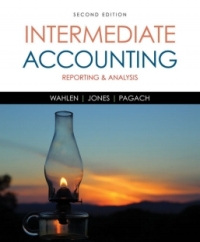Question
1. What percentage of shareholders is needed to pass special resolution? Not less than 90%. More than 50%. It must be unanimous. Not less than
1.
What percentage of shareholders is needed to pass special resolution?
Not less than 90%.
More than 50%.
It must be unanimous.
Not less than 75%.
2.
Which ONE of the following statements is true?
Only public companies can provide financial assistance to acquire their own shares.
Private companies are free to provide financial assistance to acquire their own shares. Generally public companies are prohibited from providing such assistance, but can do so in limited circumstances.
No company is allowed to provide financial assistance to acquire its own shares.
Only private companies can provide financial assistance to acquire their own shares.
3.
In order to reduce capital, a public company must pass a special resolution and obtain court approval. True or false?
True
False
4.
Which ONE of the following statements regarding pre-emption rights is NOT true?
Any company can exclude pre-emption rights by placing a provision in its articles excluding any pre-emption rights.
Pre-emption rights do not apply to an allotment of bonus shares.
Pre-emption rights do not apply where shares are to be paid up otherwise than in cash.
An allotment of shares that contravenes the pre-emption rights of existing shareholders will still be valid.
Pre-emption rights do not apply to shares to be held under an employee's share scheme.
Generally, a new allotment of shares must be offered first to the existing shareholders in proportion with their existing shareholdings.
5.
Following a successful pitch by an entrepreneur, a client is keen to invest in a new business. He has been offered a number of shares in the entrepreneurs company and wishes to understand the significance of becoming a shareholder in a small private company. Which one of the following statements is correct?
He will be one of the owners of the company involved in certain key decisions and rewarded by way of dividend if profits allow.
He will be one of the owners of the company involved in the day to day running of the company and paid a salary.
He will be one of the owners of the company rewarded by way of a dividend if profits allow but with no ability to influence the running of the company
He will be an adviser to the company on key decisions and rewarded by way of dividend if profits allow.
He will be an adviser to the company on key decisions and be paid a salary.
Step by Step Solution
There are 3 Steps involved in it
Step: 1

Get Instant Access to Expert-Tailored Solutions
See step-by-step solutions with expert insights and AI powered tools for academic success
Step: 2

Step: 3

Ace Your Homework with AI
Get the answers you need in no time with our AI-driven, step-by-step assistance
Get Started


